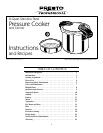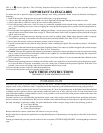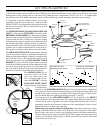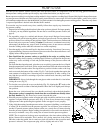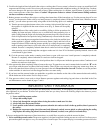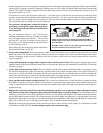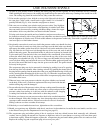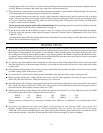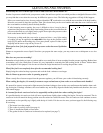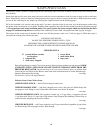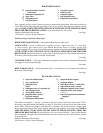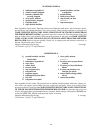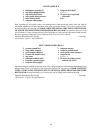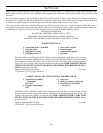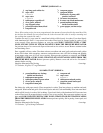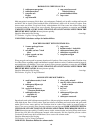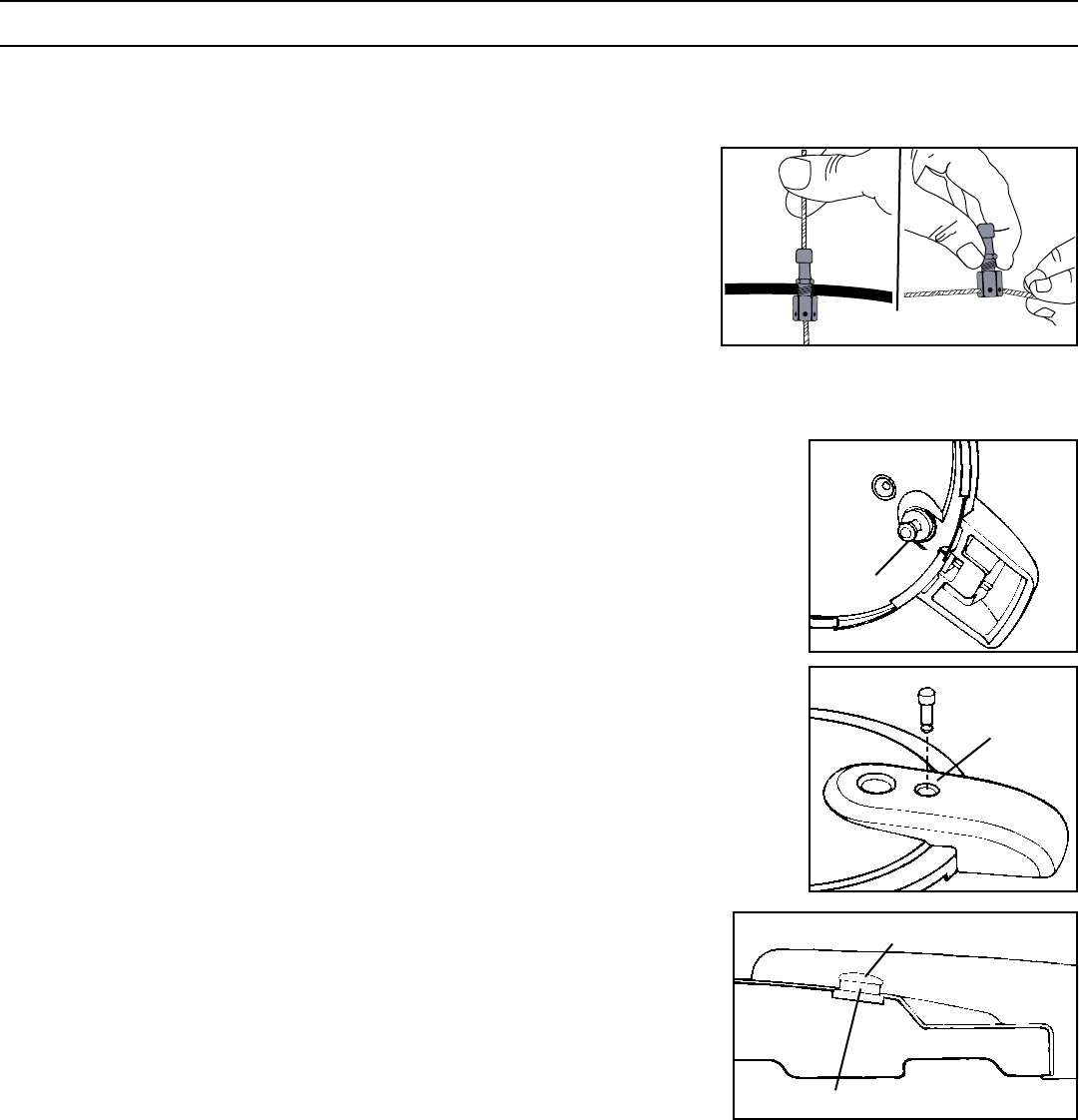
Fig. L
Rubber
Gasket
Fig. M
Cover
Handle
Hole
Fig. N
Overpressure Plug
Top
Fig. O
CARE AND MAINTENANCE
1. All parts of your pressure cooker, including the sealing ring and pressure regulator, are fully immersible for easy cleaning.
When washing the unit, however, the sealing ring should always be removed to allow easy cleaning of the inside rim of the
cover. The sealing ring should be washed in hot, sudsy water after each use.
2. To be sure the vent pipe is clear, hold the cover up to the light and look through
the vent pipe. Clean it with a small brush or pipe cleaner if it is blocked or
partially blocked (Fig. L). Also clean the vent pipe nut as shown.
3. Take care not to overheat your stainless steel pressure cooker. Very high heat
can sometimes cause vari-colored stains, called heat tints, in stainless steel. Heat
tints can usually be removed by scouring with Kleen King
cleaner for copper
and stainless steel or any other fine, non-abrasive kitchen cleanser.
To bring out its luster, the outside surface of stainless steel pressure cookers can
be cleaned occasionally with a silver polish or any other fine, non-abrasive polish. The repeated use of metal pot scours may
dull the brightness of stainless steel. If food residue adheres to the pressure cooker body, clean with a vegetable brush, a fine
steel wool pad, or a fine kitchen cleanser.
4. Occasionally remove the air vent/cover lock in the pressure cooker cover handle for clean-
ing. To remove the air vent/cover lock, place your finger over the hole in the cover handle
and remove the rubber gasket from the air vent/cover lock on the underside of the cover
(Fig. M). Push the air vent/cover lock through the top of the cover and wash it and the
gasket in hot sudsy water. The metal shaft of the air vent/cover lock may be cleaned with
a nylon mesh pad. Clean the hole in the cover handle with a small brush. After cleaning,
reinsert the metal shaft of the air vent/cover lock from the top side of the cover down
through the cover handle hole (Fig. N). Place a finger over the handle hole (to keep the
cover lock from falling out) and turn the cover over. Wet the rubber gasket and push onto
the end of the metal shaft until it snaps into the groove on the shaft. The gasket should
fit loosely in the groove.
The overpressure plug can also be removed for cleaning by pushing it out of its opening
from the top of the cover handle. After cleaning, reinsert it by pushing the domed side of
the plug into the opening from the underside of the cover, until the bottom edge is fully and
evenly seated against the underside of the cover (Fig. O). When the overpressure plug is
properly installed, the word (TOP) will be visible on the overpressure plug when viewing
the outside of the cover.
5. When not in use, store your pressure cooker in a dry place with the cover inverted
on the body. If the cover is locked on, unpleasant odors may form inside the unit
and the sealing ring could be damaged.
6. Do not strike the rim of the pressure cooker with any cooking utensil because this
could cause nicks in the rim which may allow steam to escape and prevent the
pressure cooker from sealing. As is the case with all cookware, avoid chopping
or cutting food inside the cooker with a knife or other sharp utensil.
7. Each time you clean or use your pressure cooker, check to be sure the bottom has
not been damaged. Nicks and scratches may leave sharp edges that can damage
stovetops or other smooth surfaces. Lift pressure cooker to remove it from burner.
Sliding cookware can leave scratches on stovetops.
8. If the body or cover handles become loose, tighten them with a screwdriver.
9. Should you experience any difficulties with the air vent/cover lock mechanism, located in the cover handle, send the cover
to the Presto Factory Service Department for servicing (see page 43).
10. The overpressure plug and rubber gasket of the air vent/cover lock may shrink, become hard, unusually soft, deformed,
cracked, worn or pitted with normal use. Exposure to high heat, such as a warm burner or oven top, will cause these parts
to deteriorate rapidly. When this happens, replace the overpressure plug and small rubber gasket of the air vent/cover lock.
Replace the sealing ring and overpressure plug at least every two years.
7



